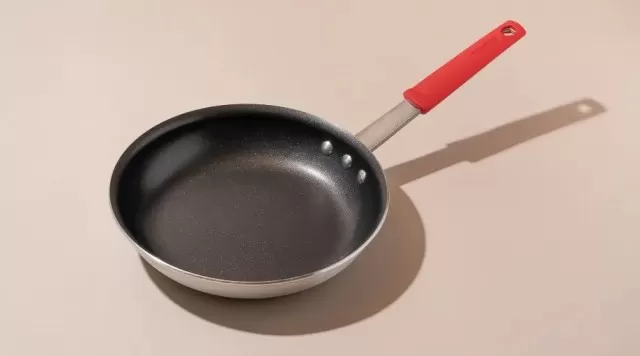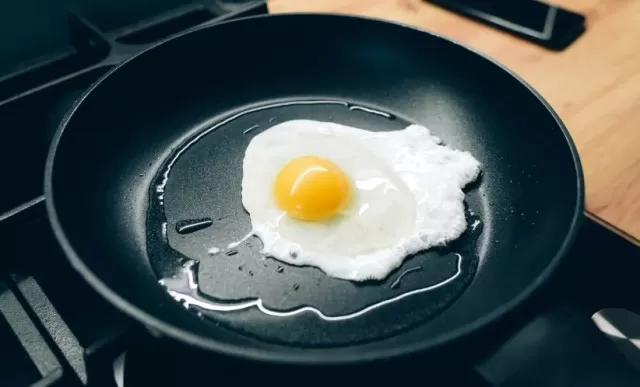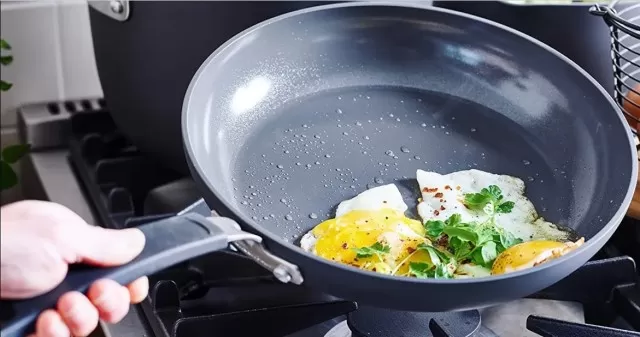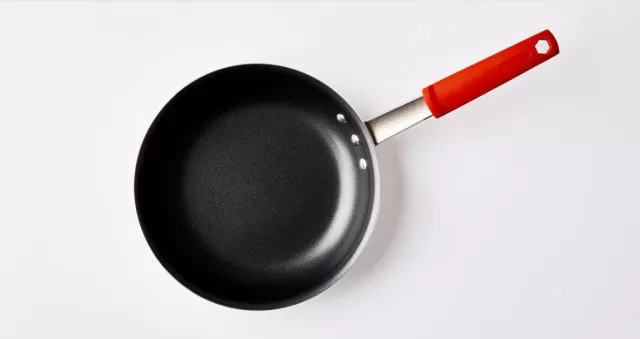Proper care for Nonstick cookware (such as Nonstick Pans) is indeed crucial for maintaining their longevity and performance.
Clean Nonstick Pans

Gather the necessary materials:
You’ll need a soft cloth or sponge, mild Dish Soap, baking soda, and cooking oil.
Handwash your pans:
While many nonstick pans are labeled dishwasher-safe, handwashing is usually The Best Option to maintain their longevity.
Dishwashers can subject the pans to high temperatures and harsh detergents, which may degrade the nonstick surface.
Scrub with Soapy Water:
Use mild dish soap and a soft cloth or sponge to gently scrub the surface of the pan.
Avoid using abrasive tools like steel wool or stiff brushes, as they can damage the nonstick coating. For stubborn residue, you may need to soak the pan in warm, soapy water for a few hours before scrubbing.
Deal with stubborn messes:
If you have burnt oil or food stuck on the surface, create a paste by mixing a small amount of baking soda with water.
Apply the paste to the affected area and lightly scrub with a non-abrasive sponge. Rinse the pan thoroughly afterward.

Rinse and dry:
Once you’ve finished cleaning, rinse the pan with warm water to remove any soap or residue.
Dry the pan thoroughly with a clean towel to prevent water spots or moisture buildup.
Re-season if necessary:
If the nonstick surface seems to have worn off or you want to maintain its performance, re-season the pan by applying a thin layer of cooking oil.
Use a paper towel to spread a small amount of oil evenly across the cooking surface. This helps restore the nonstick properties and provides a protective layer.
By following these steps and using gentle cleaning techniques, you can keep your nonstick pans in good condition and ensure they last for a long time.
Remember to always refer to the manufacturer’s instructions for specific care guidelines for your particular nonstick cookware.
Proper Care for Nonstick Pans

To care for your nonstick pans and ensure their longevity, follow these tips:.
Wash and season before using:
Before using a new nonstick pan, wash it with hot, soapy water to remove any residue from the packaging.
Thoroughly dry the pan and then season it by lightly rubbing cooking oil over the surface. Heat the pan on the stove over medium heat for a few minutes, then let it cool and wipe away any excess oil with a paper towel before storing.
Use the right cooking utensils:
Handle your nonstick pans gently to avoid damaging the coating.
Never cut foods with a knife directly in the pan, and be cautious not to stab or scrape the nonstick surface with sharp utensils. It’s best to avoid using metal utensils, as they can potentially chip the coating.
Opt for wooden spoons or silicone utensils that have no sharp edges.

Avoid overheating:
Stick to low and medium heat while cooking with nonstick pans.
High heat can gradually damage the coating, and extreme temperatures can cause Teflon (a popular nonstick coating) to release fumes. It’s recommended not to heat the pan while empty; always ensure there is oil, water, or food in the pan before turning on the burner.
This also serves as a temperature gauge to prevent overheating.
Skip nonstick spray:
Avoid using nonstick cooking sprays as they can cause food to stick and create a residue buildup that damages the nonstick surface.
Instead, use a small amount of oil or butter to assist with browning and prevent sticking.
By following these care tips, you can extend the lifespan of your nonstick pans.
They are versatile and convenient for various recipes, such as sautéed vegetables or scrambled eggs. With proper maintenance, your nonstick pans will serve you well for years to come.
*The information is for reference only.